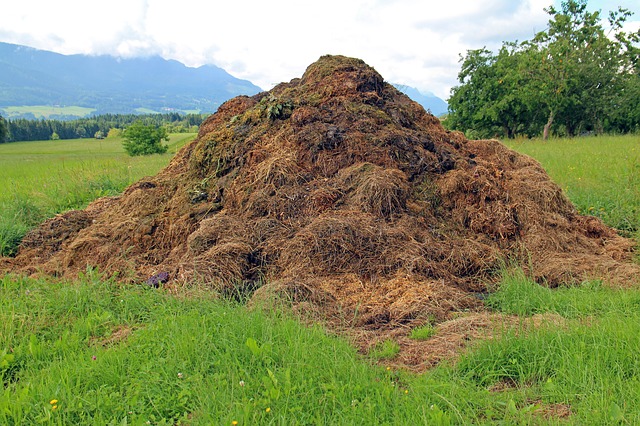We’ve already put together an overview guide of the potential pros and cons of composting on both the household and society wide scales.
In that guide, we look at the environmental, economic, social, practical, and other aspects of composting.
In the guide below though, we discuss whether composting is good or bad specifically for the environment.
Summary – Is Composting Good Or Bad For The Environment?
Is Composting Good Or Bad For The Environment?
Whether composting is good for the environment or not depends largely on:
– The type of composting
Mainly, whether composting is carried out mainly under aerobic conditions, or anaerobic conditions
We discuss this further in the guide below
– And to some extent, how the compost mix is used
Compost or ‘humus’ organic matter can have several benefits depending on how it’s used
We discuss this further in the guide below
A Potential Limitation Of Composting
One potential major limitation of composting is that it can only be used for organic matter, or materials that break down under specific composting conditions.
Other waste management methods may be able to process a wider range of waste types.
Best Way To Manage Waste
In other guides, we’ve outlined what the best ways to manage waste might be, and also compared the different major forms of waste management to each other.
For some types of waste, composting may be the best waste management option across environmental indicators and other indicators.
For other types of waste, composting may not be suitable, or be as beneficial other waste management options.
How Composting Can Be Good For The Environment
Some of the ways composting might be good for the environment might include:
– Aerobic composting can have various environmental benefits vs anaerobic composting
Some of those benefits might include:
Releasing less methane (methane has a higher global warming potential as a greenhouse gas compared to carbon dioxide)
Killing pathogens and weed seeds in the compost mix
– Composting under anaerobic conditions may still have some benefits
For example, it may be efficient at producing biogas for energy generation and heating.
If this biogas is replacing less eco friendly energy sources (for a % of energy generation), like for example a type of fossil fuel, there may be eco benefits.
Bio solids remaining from the anaerobic composting digester process may also be able to be used as a high quality fertilizer.
This may have the effect of having to use less synthetic fertilizer in some instances (which has it’s own sustainability footprint to consider)
– Soil organic matter and ‘humus’ produced from composting may have several benefits
The soil organic matter and ‘humus’ produced from the different types of composting may benefit soil health, and the growth of plants and crops in this soil in various ways.
Improving soil health, soil structure, water retention, and overall soil fertility might be some of the potential benefits
Once again, there may be the effect here of having to use less synthetic fertilizer in instances where soil fertility and nutrients can be improved or added with composting matter
– May be eco benefits for specific types of composting
Apart from the main categories of composting, there’s other sub categories of composting
One of those is ‘on-farm’ composting, which is the composting of animal manures and agricultural waste
There may be several environmental benefits of ‘on-farm’ composting to consider
– Composting keeps a % of organic matter out of landfills
Organic matter that is composted is by default diverted away from a landfill site that it likely would have ended up at (majority of the waste in some landfills in some countries is currently made of of organic waste)
This is worth noting, because not only does this potentially free up more capacity in landfills, but, it also potentially allows the waste to compost in aerobic conditions, compared to anaerobic conditions in a landfill site.
As we outlined above, this might mean less methane is released into the atmosphere.
How Composting Can Be Bad For The Environment
Some of the ways composting might be bad for the environment might include:
– Aerobic and anaerobic composting both still produce greenhouse gases
Although anaerobic composting may produce more methane, aerobic composting still produces carbon dioxide as a greenhouse gas
– Bad compost mixes might be detrimental to soil health
It takes the right knowledge and practices to develop a good compost mix.
If the compost mix turns out to be unbalanced in terms of nutrient level, pH level, or it turns out to be contaminated in some way, this may actually have a detrimental effect on soil health if applied to soil.
– Composting as an extra waste stream has it’s own footprint
Composting waste streams at the municipal level are ultimately added to existing general waste and sometimes recycling waste streams.
Adding another waste stream ultimately has it’s own footprint (in terms of bins, collection vehicles and the fuel they use, processing facilities, and so on), so, the tradeoffs should be worth it from a sustainability perspective.
Potential Pros & Cons Composting
You can read more in this guide:
Sources
1. https://www.bettermeetsreality.com/pros-cons-composting-benefits-disadvantages/
','' ); } ?>